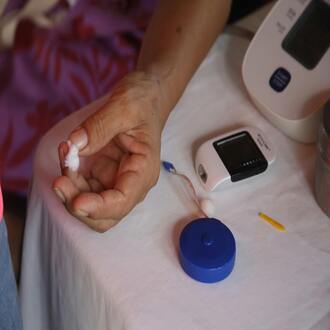Transcription Functional assessment
Functional assessment in the elderly is an essential component of health care and wellness for the elderly. This assessment considers the individual's ability to perform daily activities independently and their overall quality of life.
In this session, we will explore the importance of functional assessment in the elderly, how it is performed and how it can benefit older adults.
Introduction to functional assessment
Functional assessment focuses on evaluating a person's ability to perform essential daily activities such as dressing, bathing, eating, mobility and basic household tasks. This assessment is performed to identify functional limitations and determine the support needs an older person may have.
Identifying functional limitations
One of the primary goals of the functional assessment is to identify specific functional limitations that an older person may face. This includes assessing their ability to walk without assistance, get out of a chair, climb stairs, and perform other activities of daily living. Identifying these limitations allows healthcare professionals to design an individualized plan of care.
Mobility assessment
Mobility is a critical aspect of functional assessment in the elderly. A person's ability to move easily and safely affects his or her independence and quality of life. The assessment may include tests of balance, muscle strength and coordination, and helps determine if assistive devices, such as walkers or canes, are needed.
Activities of Daily Living (ADL) Assessment
Activities of daily living (ADLs) are essential tasks that a person should be able to perform independently. This includes bathing, dressing, feeding, and maintaining personal hygiene. Functional assessment evaluates a person's ability to perform these tasks and, if necessary, identifies adaptations or assistance that may be needed.
Quality of life assessment
Functional assessment is not limited to physical abilities alone, but also takes into account overall quality of life. The individual's emotional, social and psychological well-being is assessed, as well as his or her ability to participate in social and recreational activities. This is essential to promote a full and satisfying life in old age.
Cognitive assessment
Cognitive health is an important aspect of functional assessment. Assessment of memory, ability to concentrate and other cognitive skills can help identify problems such as mild cognitive impairment or dementia. Early detection allows these conditions to be addressed appropriately.
Designing a personalized care plan
Once a functional assessment has been completed, a personalized care plan can be designed for the older person. This plan addresses the identified limitations and seeks to improve the individual's independence and quality of life. It may include physical, occupational or speech therapy, home adaptations and social support.
One of the most significant benefits of functional assessment is its ability to promote independence in older people. By identifying areas of difficulty and providing appropriate tools and support, older people can be helped to maintain their autonomy and participation in daily life.
functional assessment




